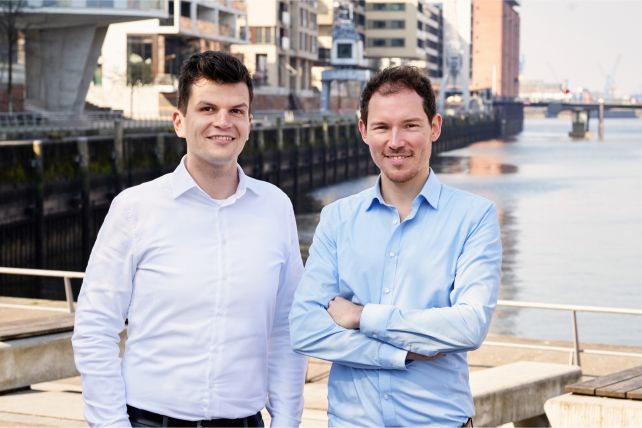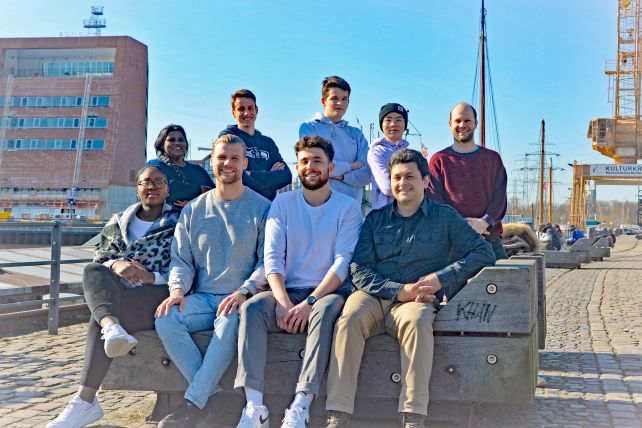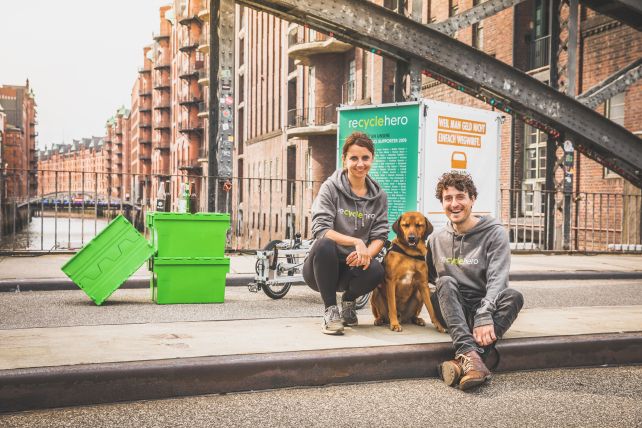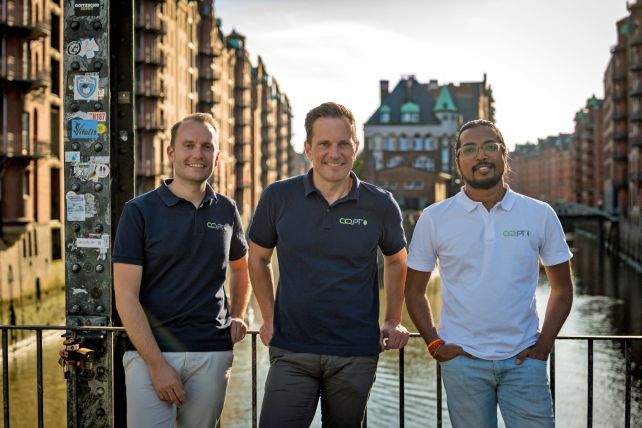AI in skies over Hamburg

Aviation, the cornerstone of global travel and transportation, is undergoing profound change. Autonomous control systems are using artificial intelligence (AI) to assist pilots and can even fly autonomously. AI-based automatic facial recognition is speeding up passenger boarding while various AI applications prevent too much traffic in skies over Hamburg and elsewhere. Thus, flight safety is improved and fuel consumption lowered. AI also speeds up cargo handling, making for more efficient airport operations. Airlines and maintenance companies use AI algorithms to analyse data from aircraft sensors and to predict malfunctions. That in turn reduces downtime, lowers operating costs and improves safety.

Hamburg’s famous aviation industry
Hamburg is a key transport and logistics hub that builds and expands the benefits of AI. The city has a long aviation tradition and is a leader of improved operational efficiency, safety, carbon footprint reduction and passenger experience. Last year, the National Aviation Conference was held in Lufthansa Technik's maintenance hangars in Hamburg.
The Hamburg Aviation cluster in the Hamburg Metropolitan Region is among the key networks in the civil aviation sector with members such as Airbus, Lufthansa Technik and Hamburg Airport. More than 300 companies cover the entire life cycle of an aircraft and the aviation value chain. This network of companies, research institutions and public bodies boosts innovation across the industry. The cluster aims to boost co-operation between industrial stakeholders and startups and to create an environment that fosters technological progress.
Hamburg is excellently positioned when it comes to AI. The AI.STARTUP.HUB Hamburg boosts cross-industry talks and links up startups and stakeholders in AI with research and business. Two comprehensive funding schemes called "AI Accelerator" and "AI Ideation" address the needs of AI teams and startups in every development phase. The AI.GROUP consisting of AI.HAMBURG, AI.FUND and AI.IMPACT is a joint founder of the hub and provides targeted support for companies and startups’ AI projects. All kinds of information is provided in addition to events and opportunities to network with Silicon Valley in the United States.
The city offers startups in the aerospace sector a wealth of support. The Centre for Applied Aeronautical Research (ZAL TechCenter) and Airbus are central to the Finkenwerder Innovation Park, which also functions as an incubator and technology centre. A collaboration with the German Aerospace Centre (DLR) eases R&D throughout the production cycle of an aircraft and promotes networking and co-operation. The free Sustainable Aero Lab for startups and researchers in the sustainable aviation industry includes live sessions with experts and access to venture capital and science. The Airbus Scale Accelerator scheme boosts innovative and sustainable ideas in aerospace.

Apart from a wide variety of funding means and networking opportunities, several international aviation trade fairs and award ceremonies are held in Hamburg. The annual three-day Aircraft Interiors Expo (AIX) trade fair focuses on aircraft cabin interiors and has been held in Hamburg since 2002 given its proximity to Airbus and Lufthansa Technik. The Crystal Cabin Award is the only international prize for outstanding innovations in aircraft interiors. Launched by the senate and managed by the Crystal Cabin Award Association, this unique award encourages companies and research institutions to come up with novel products and contemporary designs for aircraft interiors.

AI startups changing aviation industry
Hamburg offers favorable conditions, especially for fledgling companies, and is home to many successful AI startups that are shaping aviation. The Foviatech startup, for instance, offers technological innovations on several levels. Foviatech’s software and hardware products are digitising transport and the heavy machinery industry. Its AI-enhanced augmented reality and virtual reality applications optimise production and make maintenance, repair and overhaul more efficient. The company also uses graphene, a form of carbon consisting of flat layers one atom thick, which was only developed in 2004. Ergonomically adapted seats that are ideal for air taxis are just one example of these hybrid products and will probably soon play a key role in urban transport.
By all intents and purposes, Hamburg's attractiveness for AI startups in the life sciences and healthcare sector is based on compelling locational advantages. Flexible ecosystems, dedicated centers, industry giants as strong partners and a variety of exciting business events make for an environment that fosters ground-breaking innovations based on AI technology. Aviation is becoming climate neutral and making technological leaps and bounds. If your startup would like to work alongside established companies and global initiatives or you have a great business idea, then Hamburg is right for you.
Here you will find all further information on founding a company in Hamburg and news on the topic of artificial intelligence from the Hamburg startup scene. Want to get started right away? Then book a free startup consultation with the AI.Group's startup unit.
-
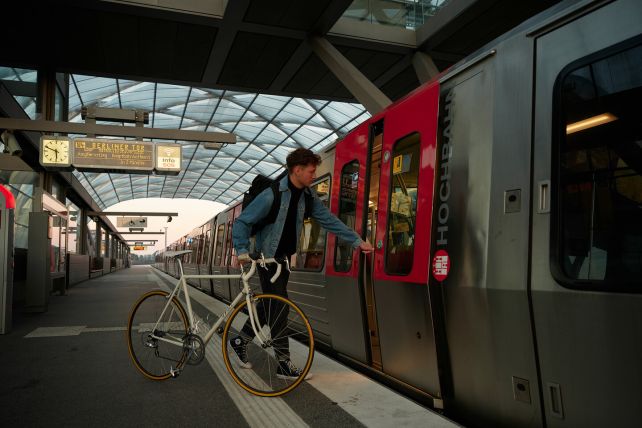
AI in mobility and logistics
AI has the potential to permanently change the mobility industry. Hamburg is regarded as a pioneer in AI-controlled mobility and logistics - urban funding and clever startups are making it possible!
-

AI from Hamburg as a booster for life science
How can AI support the healthcare sector? Hamburg offers various programmes for firms that try to expand AI in healthcare. Some local startups are also enrichting the sector with their AI innovations.


